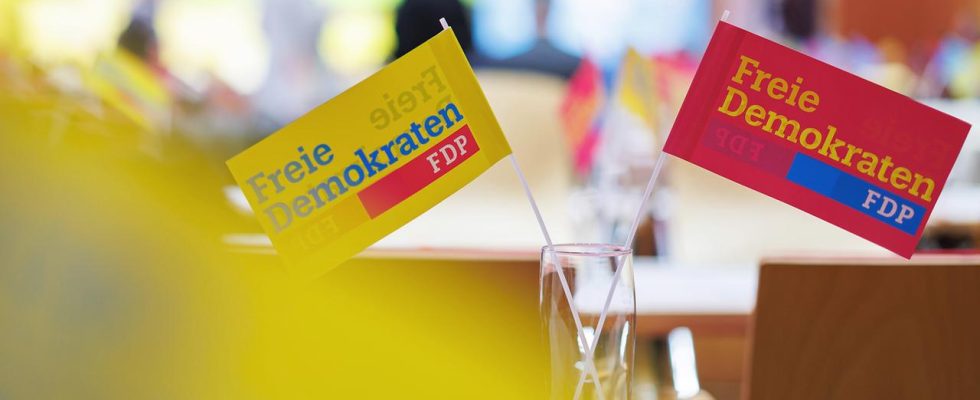analysis
Today the EU countries are voting on the supply chain law. Once again the FDP is blocking German approval, which is causing discontent in Brussels. The traffic light dispute shows the dilemma she is in.
The FDP said no – again. And now – again – he is feeling the wrath of his coalition partners. Labor Minister Hubertus Heil from the SPD speaks of an ideologically motivated blockade. Its Secretary General Kevin Kühnert speaks of harmful behavior for Germany as a business location and for companies. And Foreign Minister Annalena Baerbock from the Greens warns against losing trust at the EU level.
It’s about the EU supply chain law. It aims to ensure that companies comply with human rights and environmental standards. The FDP also believes that we are on the right track. However, the project is too bureaucratic for the liberals – also because it would affect smaller, medium-sized companies.
Germany will therefore abstain from the Council of EU Member States. The responsible Labor Minister, Heil, announced it with little enthusiasm and blamed the FDP for it.
The FDP straddles just between them
The Liberals are once again giving the impression of being a party of naysayers, slowing down important projects – especially at the EU level: such as the end of combustion engines last year or, most recently, the CO2 regulations for trucks. And that too just before.
The accusation from the SPD is: Only in the last few meters, shortly before the vote in the Council of Member States, since approval is now almost only a formality, does the FDP intervene with its veto.
But is that so? The FDP emphasizes that it has repeatedly expressed its dissatisfaction with the plans over the past year. Criticism could already be heard back then: disproportionate reporting requirements and many companies being overwhelmed by too much bureaucracy. There were also such indications internally, Justice Minister Marco Buschmann told the “Frankfurter Allgemeine Zeitung”. They had repeatedly warned during the ongoing process and made it clear that they still saw problems.
FDP is in a dilemma
So not like Kai out of the box? Either way: It seems questionable whether it would have helped the FDP to withdraw from the supply chain negotiations earlier. She would probably have had to put up with the accusation of blocking things.
So what should she do, what can she do to break out of the naysayer role assigned to her and get rid of the accusation of always blocking? The FDP is in a dilemma. It is the smallest partner in a three-party constellation – with the least political overlap with the other two parties.
This means she often finds it difficult to achieve her goals. Because their goals often do not match those of the SPD and especially the Greens – such as the debt brake or the heating law. And where the FDP and its coalition partners aim for the same goal – such as relief for companies – there is disagreement about the right way to get there.
Alternative: Grinding your teeth to make compromises
The calculation: If the FDP wants to remain true to itself and its goals and values, it can often only say no in this government. Her alternative would be to grudgingly make compromises – and as a consequence face the accusation that she is betraying her goals and not sticking to what she promised the voters.
So would opposition have been the better option for the Liberals? Would you prefer criticism from outside rather than opposition within the government? FDP politicians point out that a lot has been achieved. A very current example: the key points for the community of responsibility that Buschmann presented this week.
However, it remains questionable whether these small successes are enough. Loud ARD Germany trend The FDP is at four percent and would therefore no longer even be represented in the Bundestag.
Bianca Schwarz, ARD Berlin, tagesschau, February 9, 2024 6:11 a.m

